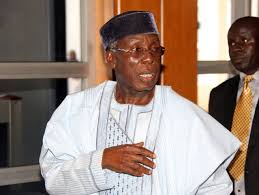By Monday EBALU, Benin City
Ni g e r i a n Institute for Oil Palm Research, NIFOR has advocated for a national policy framework that guarantees access to cheap investment funds saying such could best encourage indigenous participation in oil palm production in the country. The Executive Director, Nigerian Institute For Oil Palm Research, Mr. Omorefe Asemota made the appeal while speaking at the Oil Palm Seed Growers Meeting, Refils Workshop and In-House Review with the theme “Research and Extension: A Panacea for Food Security, Women and Youth Empowerment, Employment Generation and Wealth Creation” held at NIFOR, Benin City. Asemota said NIFOR was charged with the supply of nine million sprouted seeds between 2012 and 2014, a task which was successfully completed noting that if all the seedlings were planted in the field by states, estates and other beneficiaries, over 62,000 hectares of improved planting materials would have been added to the national oil palm holdings though small when compared to Asians countries. He said though oil palm industry in Nigeria is growing in leaps and bounds, but it is also getting more sophisticated, therefore it is not surprising, giving the increasing importance of palm oil, that production methods are coming under close scrutiny adding that such has led to a number of developments such as the Roundtable on Sustainable
Palm Oil, RSPO. Asemota noted that despite the monumental increase in oil palm production in the country, the proportion of investments especially in the large estates categories, it has remained lopsided in favour of the foreign investors.
He further noted that, for the institution to compete with its counterparts in other countries, significant investments are needed in the areas of human capacity development to execute needed researches in order to return the institution to its pride of place. “In spite of the achievements recorded, the institute’s infrastructure has aged and requires replacement in such strategic areas as the laboratories, the seed production, the nursery, and production areas such as the mill. “A number of our fields also require replanting. In addition, science is constantly evolving. NIFOR requires significant investments in human capital development to execute needed research and match its counterparts elsewhere in the world and play its prescribed role of adequate funding to accomplish these challenging assignments in the interest of the country and to return NIFOR to a centre of excellence”, he emphasized. In an address delivered by Mr. Omoragbon Wellington on behalf of the Permanent Secretary, Federal Ministry of Agriculture and Rural Development, Dr. Shehu M.U. Ahmed, said the Ministry through the departments of Agriculture and Extension will continue to collaborate and support NIFOR and relevant stakeholders to realize its mandate

Leave a Reply